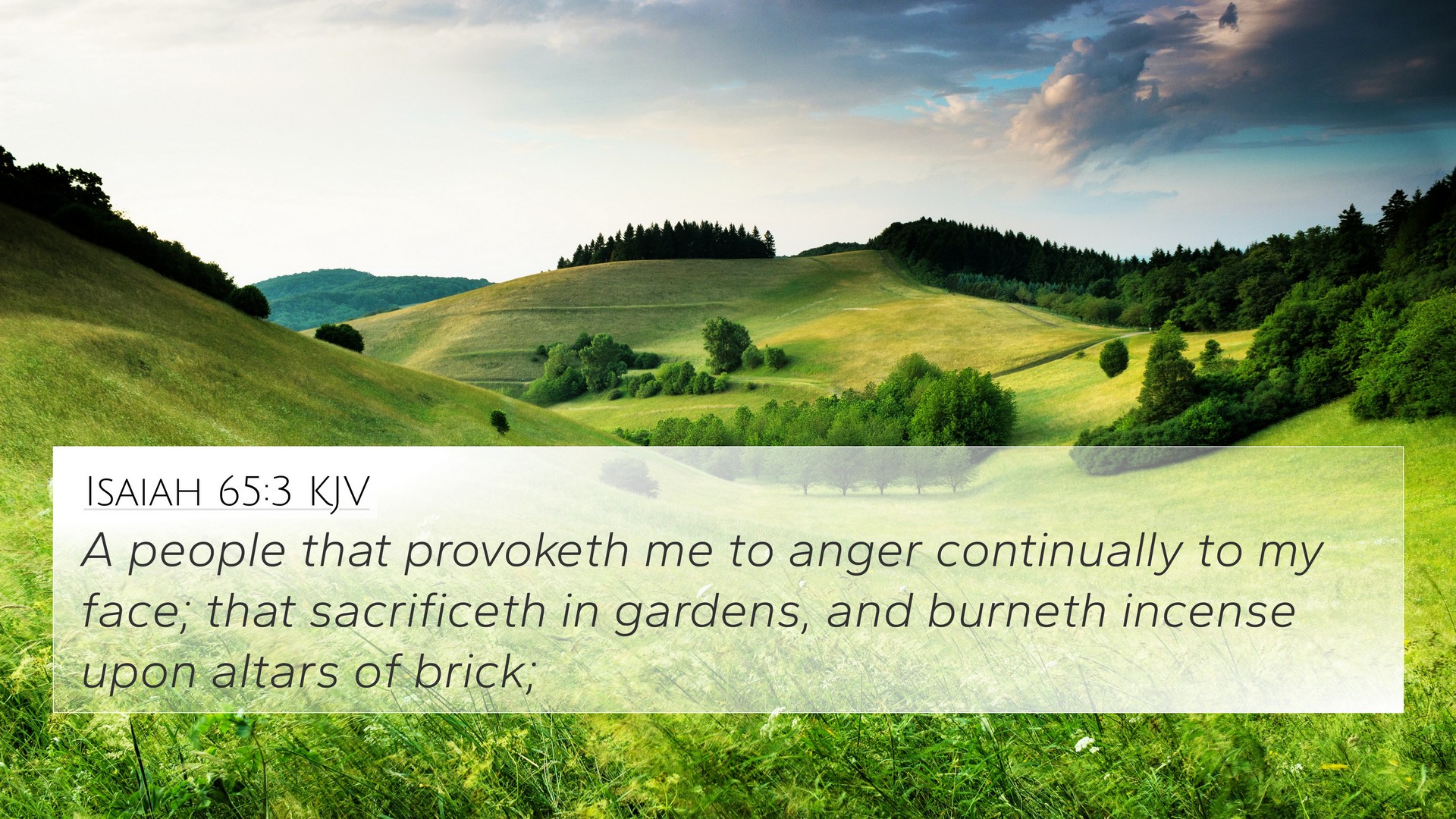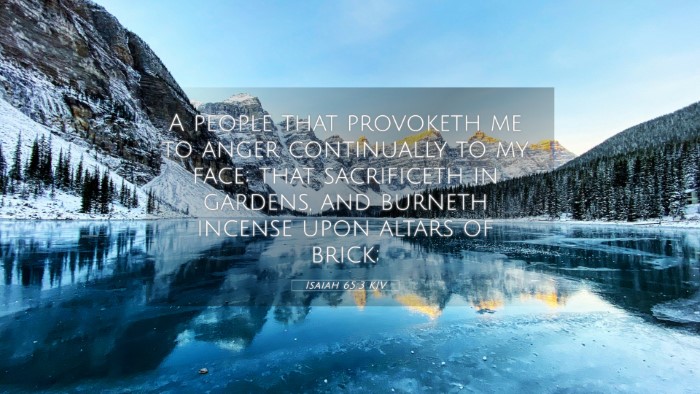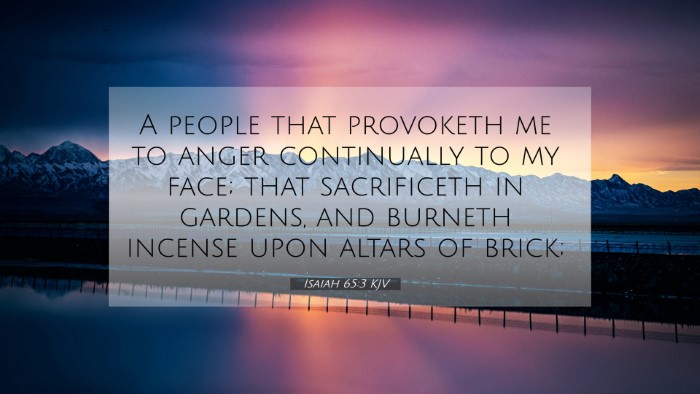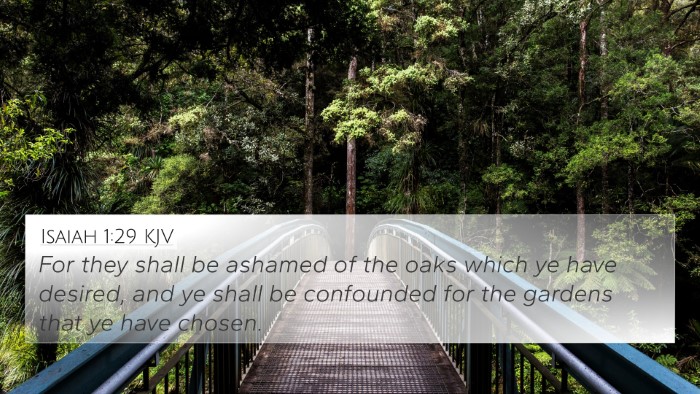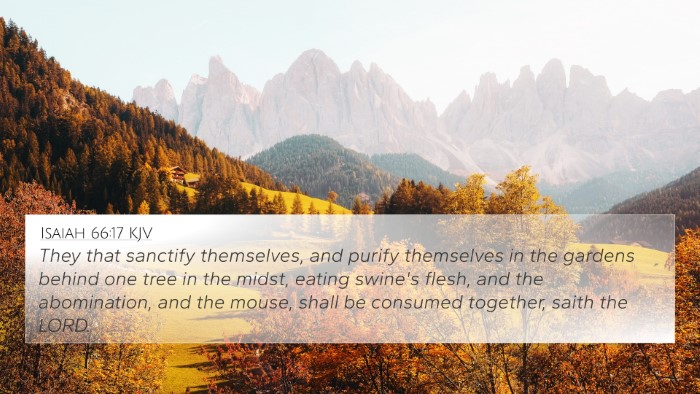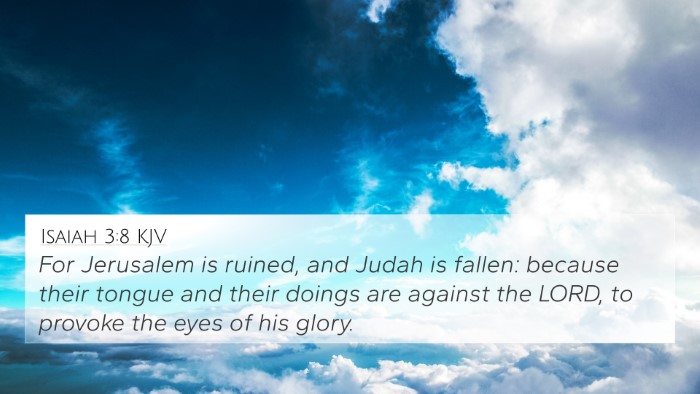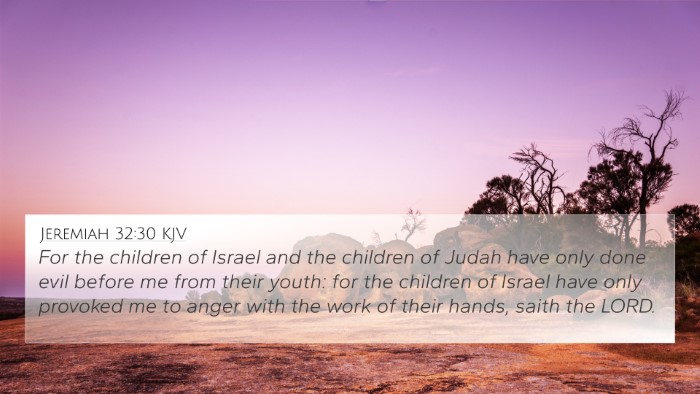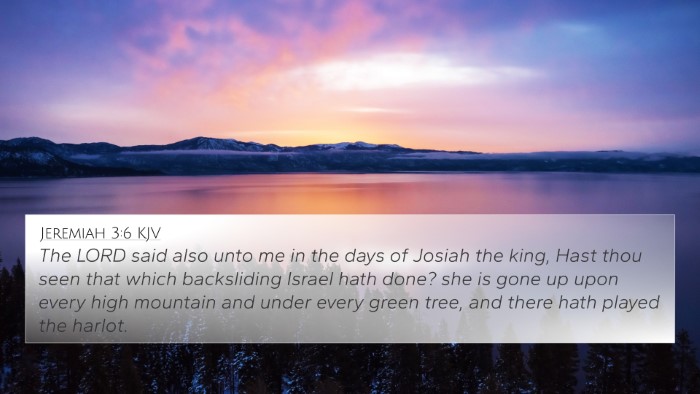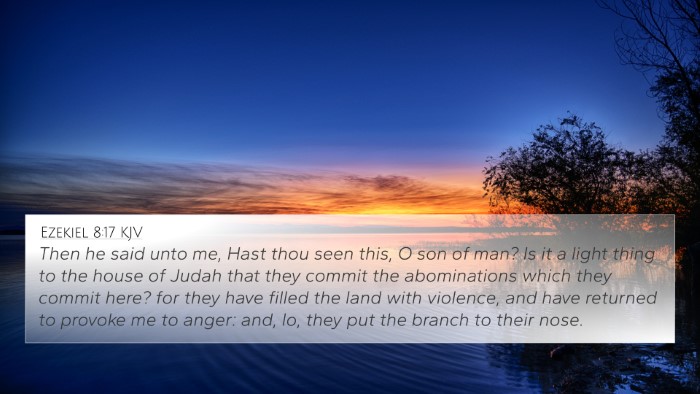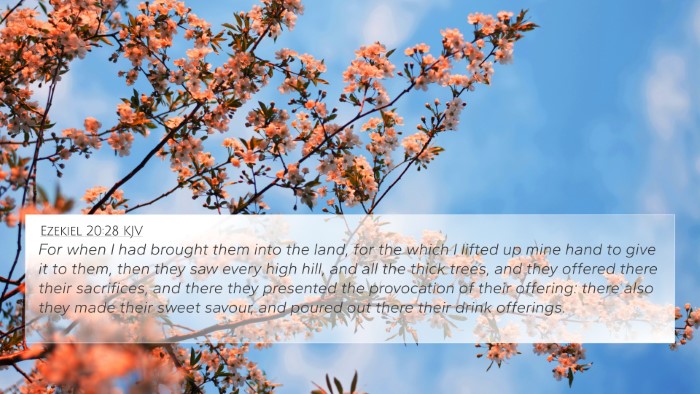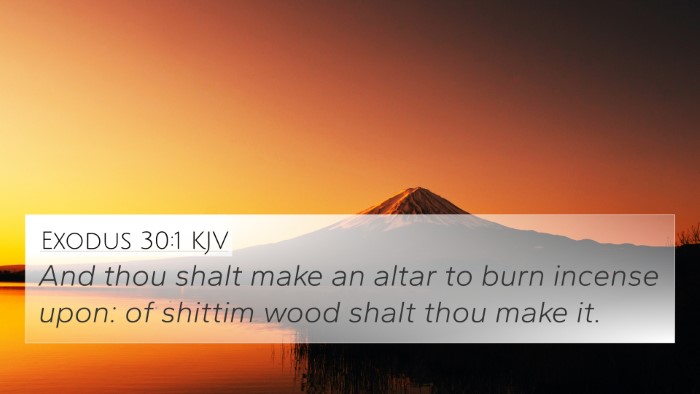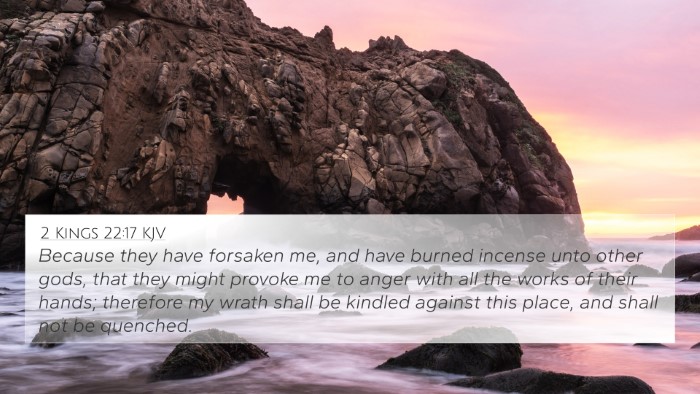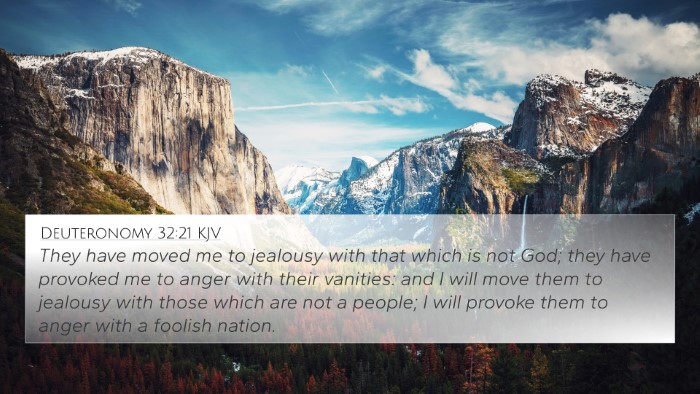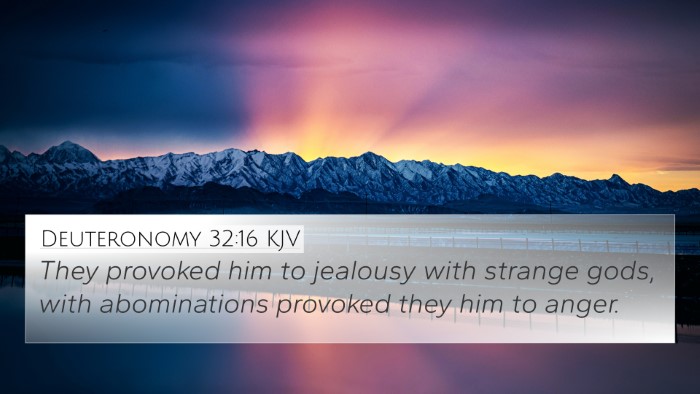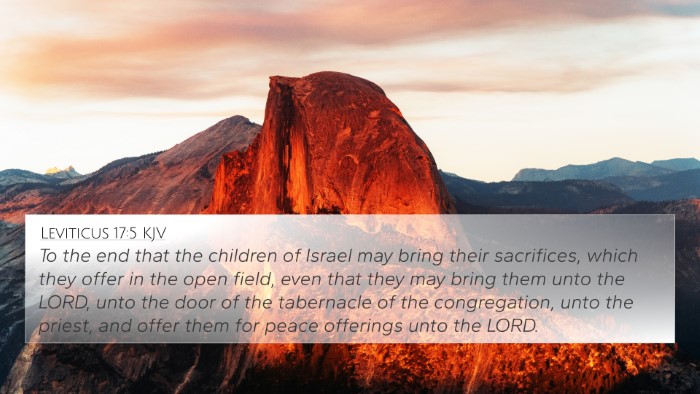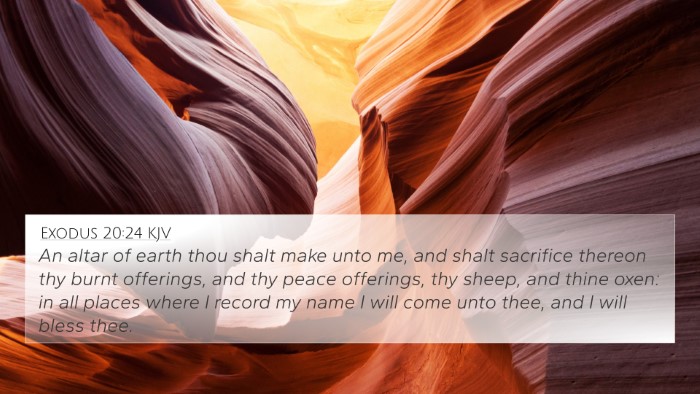Understanding Isaiah 65:3
Isaiah 65:3 states:
"A people that provoketh me to anger continually to my face; that sacrificeth in gardens, and burneth incense upon altars of brick."
Summary of Isaiah 65:3
This verse depicts a group of people who consistently engage in actions that provoke God's anger. They are characterized by their worship practices, which are deemed corrupt and unpleasing to the Lord. The imagery of "sacrificing in gardens" and "burning incense upon altars of brick" signifies a deviation from proper worship, emphasizing a misunderstanding of God's expectations for true worship.
Commentary Insights
Matthew Henry's Commentary
Matthew Henry elaborates that this verse reflects the obstinacy and rebellion of the people against God. They not only act against God's commands but do so in open defiance. Their places of worship are often false, as it mentions gardens and brick altars, which symbolize a shift from sanctified worship to pagan-like practices. Henry emphasizes the seriousness of provoking the Lord to His face, pointing out that their actions are blatant, as they disregard His sovereignty.
Albert Barnes' Notes
Albert Barnes highlights that this verse illustrates the nature of the people's sin. The choice of places for worship (like gardens) indicates an informal and inappropriate approach to offerings. He argues that this rebellion is characterized not only by their practices but also by their rejection of God’s messengers. Barnes refers to the idea that they are ‘continually’ provoking God, which suggests a persistent state of disobedience. He connects it with their lack of reverence towards the divine, showing how they present their sacrifices without understanding true holiness.
Adam Clarke's Commentary
Adam Clarke identifies the historical context of this verse, attributing the behaviors of the people to their idolatry and the influence of surrounding pagan cultures. He also points out that their offerings in gardens were often associated with fertility rites practiced by the Canaanites, thus highlighting their syncretism with other beliefs. Clarke underlines the grave consequences of such actions as they fail to recognize that true sacrifices must be offered in the spirit of genuine worship and adherence to God’s commands.
Bible Verse Cross-References
Isaiah 65:3 is connected to several other biblical texts that reinforce the themes of worship, rebellion, and God's response to human behavior. Here are some notable cross-references:
- Isaiah 1:11-15 - Discusses ineffective rituals and the need for true worship rather than mere ceremony.
- Jeremiah 7:18-19 - Addresses the issue of idolatry and how it provokes God's anger.
- Ezekiel 8:5-18 - Portrays the people of Israel's idolatrous practices and their consequences.
- Amos 5:21-24 - God expresses disdain for Israel's rituals that lack righteousness.
- Leviticus 10:1-3 - Highlights the severe consequences of offering unauthorized fire before God.
- Matthew 15:8-9 - Jesus quotes Isaiah to illustrate the disconnect between outward worship and inward devotion.
- Romans 12:1 - Invites believers to offer their bodies as living sacrifices, contrasting with false practices.
Thematic Bible Verse Connections
This verse's themes of idolatry and insincere worship are prevalent throughout Scripture, demonstrating how these issues led to God's judgment. The connections made between these verses provide a broader understanding of the required posture in worship, emphasizing the importance of honoring God in spirit and truth:
- Worship in Spirit and Truth: John 4:24 emphasizes that God's true worshipers must worship Him sincerely.
- God's Jealousy for True Worship: Exodus 20:5 speaks of God's jealousy towards idolatry.
- Sins of the People: Psalm 106:39 describes how the people became unclean in their practices.
Conclusion
Isaiah 65:3 serves as a profound reminder of the seriousness of worshiping God comprehensively. The combination of comments from the various Biblical scholars reflects that God desires a relationship grounded in genuine worship, warning against the pitfalls of insincerity and idolatry. Understanding this verse within its broader biblical context emphasizes the critical nature of proper worship and reverence for God, offering insights that are essential for believers today.
Further Study and Resources
For those interested in deeper exploration and understanding of Bible verse meanings and connections, several tools can enhance the study:
- Bible Concordance: Use a concordance to find scriptures related to specific topics or themes.
- Cross-reference Bible study: Engage with cross-referenced materials to understand how verses relate to one another.
- Bible cross-reference guide: Utilize guides that help navigate connections between Old and New Testament verses.
